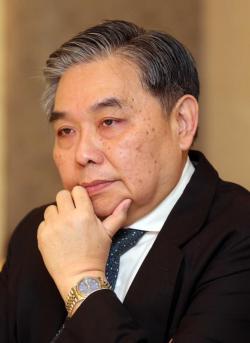The economy this year is likely to improve slightly from last year but a spate of uncertainties will make 2017 a challenging year for Southeast Asia's second largest economy, Finance Minister Apisak Tantivorawong says.

Apisak: New year brings challenges
A marginal improvement in economic growth is expected in 2017 barring any unexpected incident, but external factors are major risks, he said.
The Finance Ministry's Fiscal Policy Office has projected that the economy will expand by 3.4% this year, slightly up from the 3.3% predicted for 2016.
Mr Apisak said it is necessary for local exporters to make products that entail innovation in order to beef up their competitive advantage against other countries' products.
Amid the intense competition, businesses or products with low competitiveness or lack of innovation will be wiped out, he said.
He referred to the International Monetary Fund's forecast that 2017 will be a year when global trade grows at a slower pace than the global economy, a phenomenon that can be seen in periods of crisis.
The prediction reflects that all countries are rebalancing their economies by pushing demand at home to play a greater role as a growth driver, Mr Apisak said, noting that Thailand, like others, needs to focus on the domestic economy.
The government is pushing on with big-ticket infrastructure investment in a bid to sharpen the country's competitive edge. Mr Apisak estimates that around 220 billion baht will be poured into such large-scale infrastructure projects in 2017.
Even though the government offered a double deduction for investment expenses from corporate income tax for private sector investment kick-started during 2015-16, private investment has hardly grown, he said.
He said he hoped the government's 100-billion-baht investment in 18 provincial clusters would trigger investment across the country.
The private sector has remained cautious about investment after the Asian financial crisis of 1997, but operators should take changing technology into account to prevent lagging behind their rivals, Mr Apisak added.
Besides, the government has laid down the roadmap for Thailand 4.0, a value-based economy, and state investment in 2017 will be geared towards raising the country's competitiveness.
He said the rising oil price and the higher US interest rate would not hit the Thai economy as both are bouncing back from steep falls to normal levels.
The US central bank is expected to raise policy rate gradually, Mr Apisak said.
After it raised its benchmark rate by a quarter percentage point in December, the Federal Reserve sent hawkish signals of a faster pace of rate increases in 2017 and the market anticipates three interest rate hikes this year.
Mr Apisak said the government will continue to provide assistance to the vulnerable sectors of society but the private sector must adjust as well.
In the meantime, he said the e-payment channel that the government will use to direct subsidies and welfare to particular groups is expected to go fully operational in the middle of this year.
The government plans to open registration during March and April for those who want to receive subsidies. People who qualify for the scheme will receive e-wallet cards which will entitle them to cheaper or free public services provided by the government.